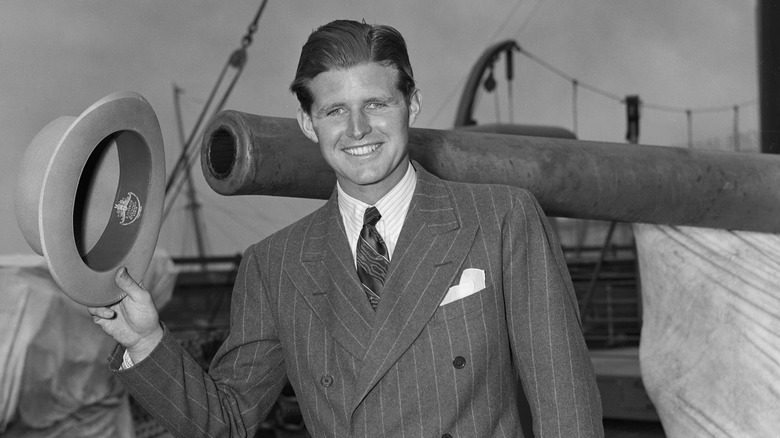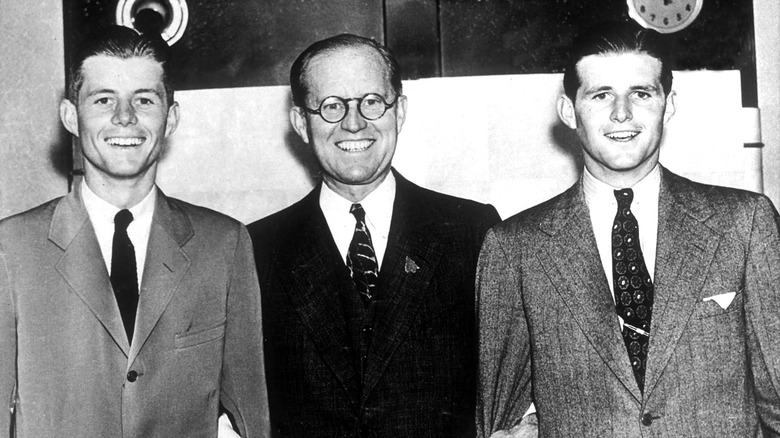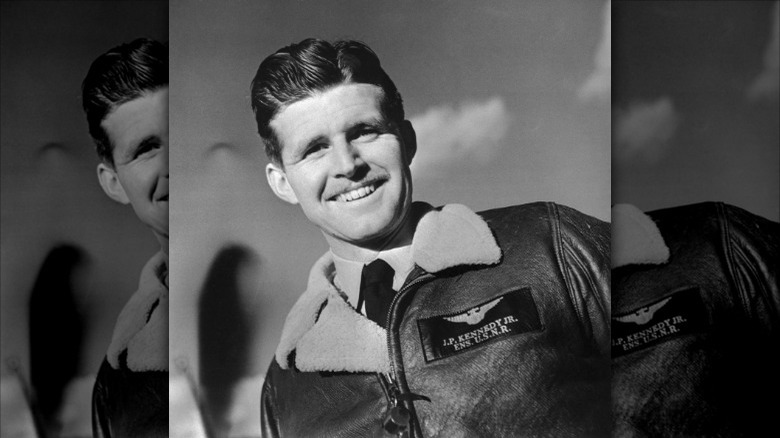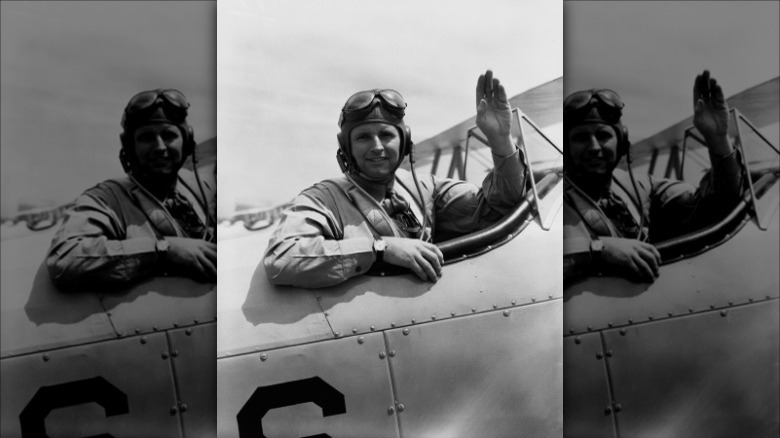The Tragic Death Of JFK's Brother, Joe, At Just 29 Years Old
Few families in 20th-century American history have attracted such glamour on the world stage as the Kennedys — nor have many befallen so many tragedies in the public eye. Most notable are the assassinations of President John F. Kennedy and Robert Kennedy, who were shot and killed on November 22, 1963 and June 5, 1968, respectively. John F. Kennedy and his wife, Jackie, had a total of four children, only two of whom made it to adulthood. Their first daughter, Arabella, was stillborn in 1956, while their premature son Patrick — who was born in 1963 shortly before his father became president — died just less than two days after he was born. Another son, John F. Kennedy Jr., died in a plane crash in 1999 along with his wife and sister-in-law. Two of Robert's children also died in tragic circumstances: Michael Kennedy in a skiing accident in Colorado in 1997 age 39, and David Kennedy of a drug overdose in Florida in 1984, age 28.
But before the Kennedy brothers rose to prominence in the world of American politics, there was another tragic death in the family: that of John and Robert's older brother, Joseph, who lost his life in the skies over England on August 12, 1944, at the age of just 29. It was a death that changed the course of the Kennedys' family history and pushed John to seek the highest office in the land.
Joseph Kennedy Jr.: a son of ambition
The political success of John F. Kennedy and his brother Robert was largely due to the influence of their father, Joseph Kennedy Sr., a millionaire banker and tycoon who set high aspirations for his children and instilled in them a level of extreme competitiveness. The major competition within the family occurred between the two eldest boys among his nine children: Joseph Patrick Kennedy Jr. and JFK. According to "John F. Kennedy: A Biography," Joseph Sr. initially expected Joseph Jr. — who earned renown in his school years thanks to his athleticism — to be the first to enter politics and public service. But JFK, who suffered from poor health in his early years, competed with his brother academically and managed to enter Harvard University, where his father and older brother had also studied.
The two brothers also maintained their sibling rivalry as World War II became a reality, with both men entering the U.S. Naval Reserve and Joseph Jr. becoming an aviator in 1942.
A wartime rivalry
With the horrors of World War II on full display, it may be surprising to consider that young men such as Joseph Kennedy Jr. saw the war as a path toward personal glory. But the Kennedys were extremely ambitious and competitive with one another. The first of the Kennedys to distinguish himself as a war hero was the future president, John, who — after the boat he was captaining in the Pacific sank following a collision with a Japanese destroyer — played a vital role in saving the lives of his shipwrecked crew. John received numerous medals for his actions and was profiled in many national newspapers that were looking to raise the public's morale with tales of American bravery.
According to Vanity Fair, Joseph was reportedly frustrated by his younger brother's fame and adulation. By 1944, he had already partaken in numerous combat missions and had earned the right to end his military service and return to the United States. However, seemingly with John's military heroics in mind, he decided to sign up for yet another dangerous assignment.
The fateful Operation Aphrodite
Operation Aphrodite was the codename of a mission that was both experimental and extremely dangerous, undertaken to combat underground Nazi ballistic missile bunkers that had been installed under the earth on the French shores. The bunkers were pointed at central London, where their rockets were causing horrendous damage and many deaths. With the bunkers impervious to traditional bombings, military leaders hatched a plan to fill outdated aircraft with explosives, which would then be guided to their targets by radio control. This was the mission that Joseph Kennedy Jr. volunteered for — he was to pilot one of the aging planes during take-off, then eject as he handed the plane over to radio control.
Moments before Kennedy and his copilot were due to eject from the explosive-filled plane something ignited the volatile cargo, destroying the plane instantly and killing both Joseph and his co-pilot. Joseph's passing was a great blow to the Kennedy family. After Joseph Jr.'s death, John F. Kennedy became the family's chief future political hope.
But Joseph Kennedy wasn't the only one of that generation of the Kennedy family to lose his life in the 1940s. His younger sister, Kathleen, died in a plane crash in 1948 at the age of 28, one of four of Joseph Kennedy Sr.'s children to die young in tragic circumstances.



